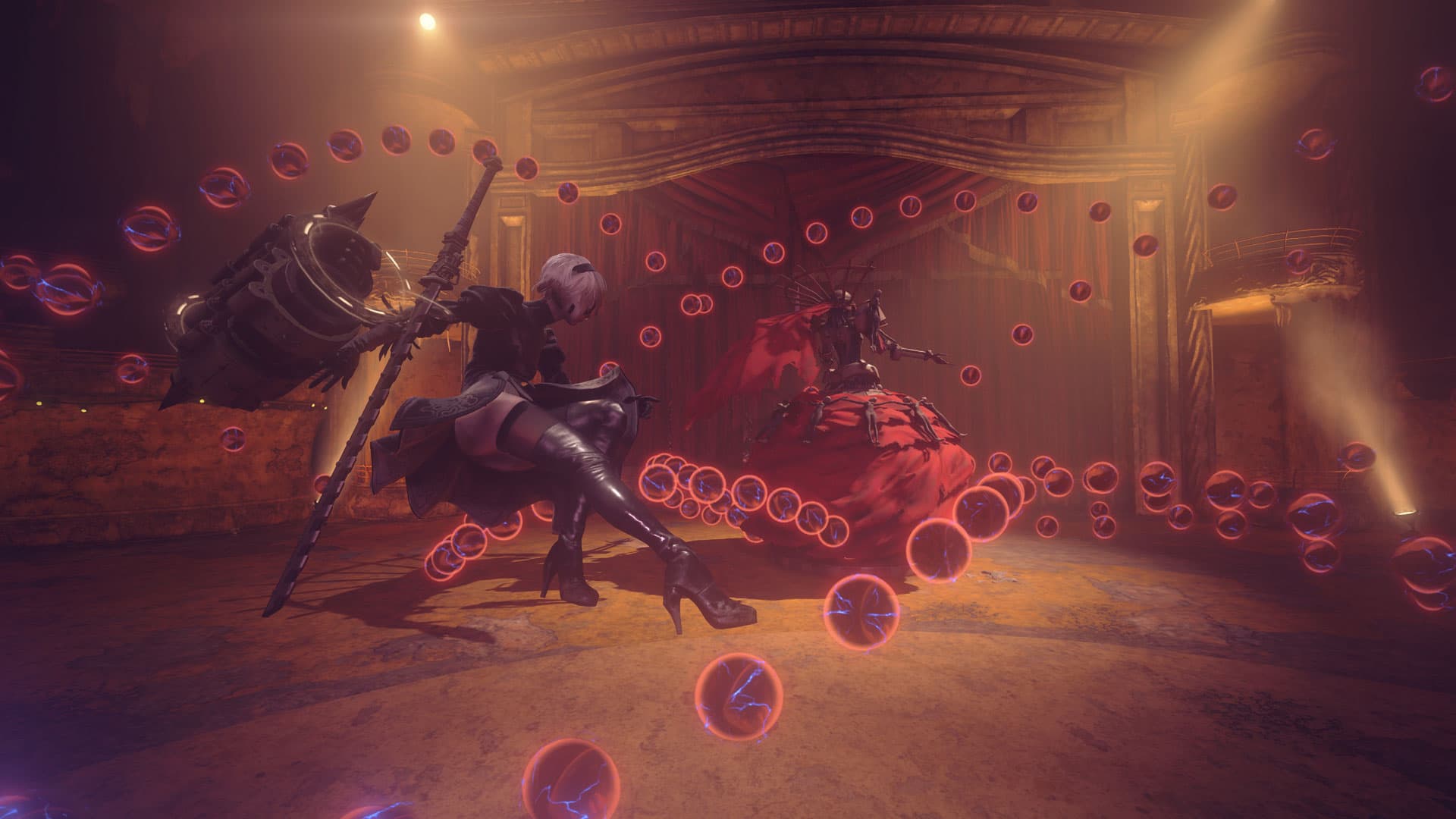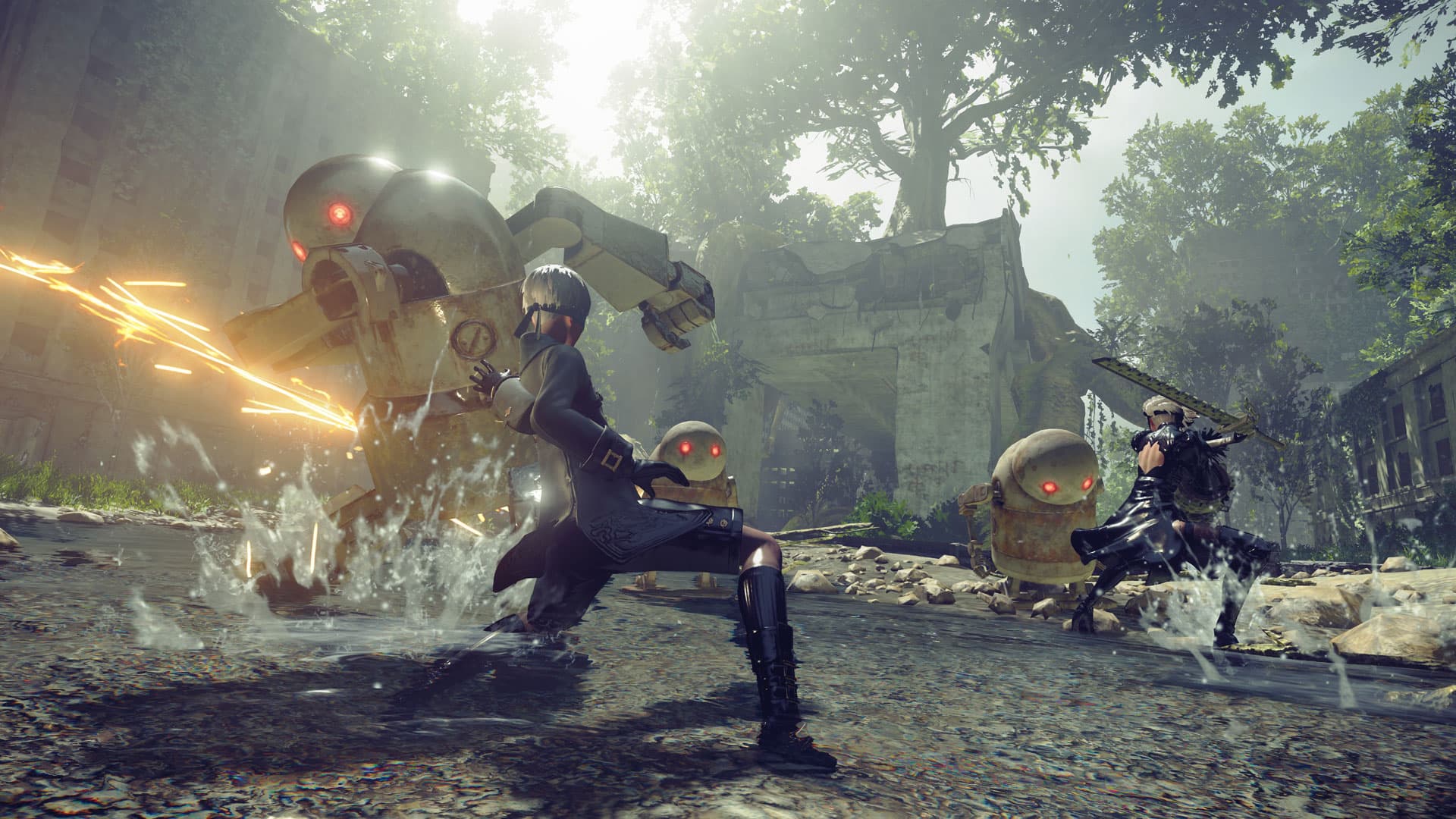Nier: Automata brings cult RPG action to the PC, with help from Platinum Games
Robots have pushed humans to the Moon. Time to push back.

For the first time, Square Enix’s Nier is crossing over onto our PCs. So what is Nier, other than a deeply forgettable name for a computer game? This action RPG was originally released on consoles in 2010. Its outdated visuals and awkward arrangement of ideas torn from multiple genres didn’t win everyone over, but the game’s offbeat tone and ambition earned it a cult audience. They embraced the weirdness of its slightly dreary setting and forgave its lacklustre combat, and they’ve been vocal enough that Square Enix is taking a second look at turning it into a series.
"The previous title wasn't so much of a huge success worldwide, even though we do have a lot of core fans that really liked the game," explains returning producer Yosuke Saito. "When I thought about creating the next title in the franchise I thought that I needed to gain something new in order to be successful."
That next game is Nier: Automata. Chief among the 'something new' is the addition of Platinum Games as a development partner, the studio best known for its outstanding work on the combat-focused console masterpieces Bayonetta and Vanquish (and, on the PC side, Metal Gear Rising Revengeance). Platinum’s role is, according to Saito, multifaceted. It’s tasked with making Automata's combat look and feel flashier and more rewarding than that of the previous game, while also hopefully extending Nier’s appeal to more Western players.

Before fans of dizzying combo strings and full screen special moves get too carried away, though, this is not a dedicated brawler. Saito is diplomatic and delicate in his attempts to not ostracise returning fans of the series. "The image I have is of a game that is 60 or 70 per cent RPG and 30 or 40 per cent action. [Automata] isn't necessarily more action-orientated than previous games in the series, it's just that the action is better than it was."Indeed, my short hands-on demonstrates some progress with the hack-and-slashing element of Nier. Attacks have all the trademark flair associated with Platinum Games, with volleys of swordplay and mid air juggling aplenty. Even in isolated sequences of combat, Automata offers more exciting-looking action than anything seen in the dull-looking original.
While Automata has the spectacle of a traditional Platinum game, it doesn’t necessarily have the same level of challenge—Nier is still an RPG at heart, if you want it to be. The developers promises difficulty settings that will appeal to players who prefer either approach. Saito goes out of his way to make clear that progress through skirmishes can be achieved by levelling up your characters and assigning them greater skills, rather than forcing players to learn complex sets of inputs and attain perfect dodge and counterattack timing.
The presence of an AI companion helps you navigate through fights more easily and quickly. You can assign your partner some basic commands that dictate how aggressive they are through the course of an encounter, as well as how readily they might start one. Precisely how effective your partner is at dealing damage has yet to be finalised, but the difficulty setting should dictate that so some degree. Opt for the latter and it's not unreasonable to expect your AI buddy to do most of the sweaty, dangerous work for you.

This follow-up is set in a different, more futuristic timeframe than the original Nier, and therefore should feel self-contained. An army of invading machines have taken over Earth, forcing people to migrate to the Moon. You’re playing as an android, part of a resistance group attempting to take Earth back, which is now in a bit of a state. Automata is set in a series of open worlds. You can explore these large, environmentally distinct locations your own pace, but each is self-contained within its own borders. So far I’ve spotted sand dunes surrounded by rocky brown mountains with a cloudless blue sky, as well as a dilapidated and flooded play park surrounded by crumbling urban buildings.
Keep up to date with the most important stories and the best deals, as picked by the PC Gamer team.
Square Enix’s efforts to appeal to both RPG and action players seems wise. Even in Platinum’s weaker recent efforts, like Transformers Devastation, there is at the very least a decent combat system to get to grips with. Nier Automata has the air of a passion project about it—another chance for a less-than-successful series to catch on.

